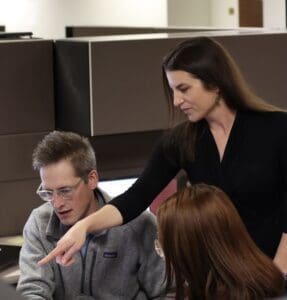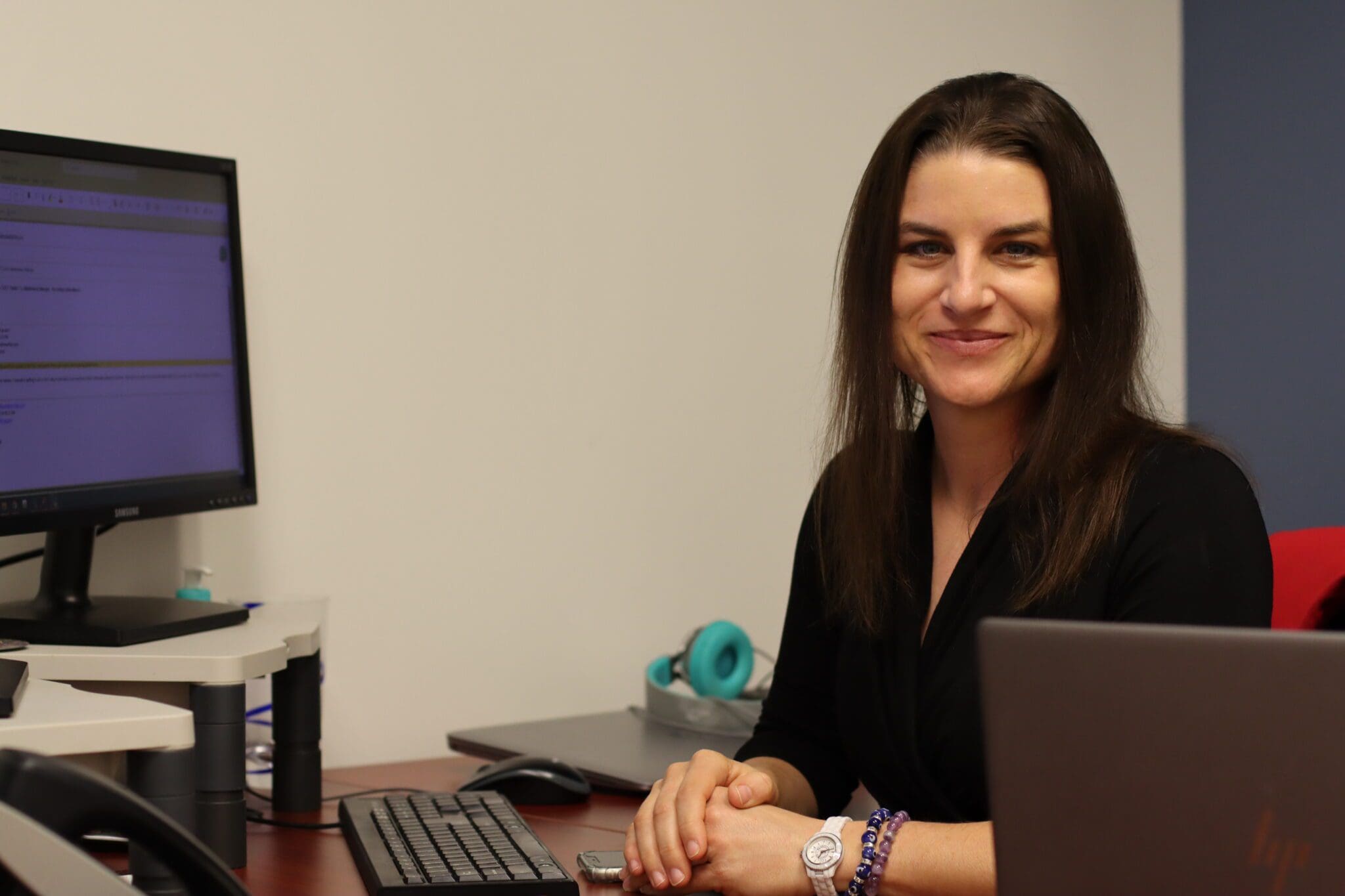ATLAS DULUTH, GA — When Felecia Basolo opens her dashboard, an onslaught of information overwhelms the screen.
“There are hundreds, maybe even thousands of people involved with federal aid,” she said. “I just try to keep all the chaos moving forward.”
As Deputy Program Manager of the Local Administered Projects (LAP) initiative, Felecia facilitates core activities of federally funded transportation projects.
Responsible for reporting bottlenecks to the Georgia Department of Transportation’s (GDOT) Program Delivery Office, Felecia typically liaises with local agencies and municipalities on project deliverables to offset delays.
If Felecia’s team of project managers encounters potential setbacks, she intervenes to keep processes moving.
Yet the duration of federal aid projects largely depends on their complexity and can last five to 10 years.
“The majority of our work so far has involved bringing cities up to more pedestrian- and bicycle-friendly standards,” she said. “Making downtown districts safer, road-widening projects, intersection improvements, that sort of thing.”
To keep pace, Felecia helps partner agencies walk through stringent federal requirements, as noncompliance by local parties remains a well-documented risk area.
“We provide support for various external entities in need. We often jump into unforeseen situations to support community staff, and other team members, because we understand that unique situations occur,” she said. “It’s based on community needs.”
But agency officials aren’t the only people Felecia advises.
Under Atlas’ 2023 program management services contract, Felecia upskills GDOT personnel, too.
“After GDOT employees [and other clients] are onboarded, the learning begins. Our team is blessed with lots of experience, and that’s where our strength lies,” Felecia said. “We’re able to talk [new employees] through complex scenarios and show them how things work.”
Between former Federal Highway Administration (FHWA) Engineer, Wright Aldridge, former GDOT Engineer, Mark Lawing, and others, the team holds more than 150 cumulative years of experience.
“There’s a built-in wealth there,” she said. “I can walk around the corner and talk to the person who implemented policies numerous times so that I can effectively communicate [policy] nuances to others.”
Still, each project poses its own set of distinct challenges. The majority of issues Felecia encounters are communication-based rather than technical.
“We learn from these types of hiccups, we can manage them easier whenever they come up again,” she said.
One particular lesson learned would’ve cost a project valuable time to rectify.
Felecia noticed that the Atlanta Police Department (APD) hadn’t been notified of a road diet in downtown Atlanta. The project would conflict with adjacent security and traffic cameras.
“When we move the poles or do any work with the signalization, we have to account for how it may affect things like attached cameras and video cables,” she said. “They all exist on the same electric grid.”
Shortly after detecting the discrepancy, Felecia was able to connect the designer to APD and transfer information that led to a plan to mitigate the conflicts.
 Felecia characterizes these lessons as invaluable.
Felecia characterizes these lessons as invaluable.
“When things fall through and we learn what not to do, it’s actually more beneficial,” she said. “If we’re able to apply these lessons to upcoming projects, that’s a win.”
LAPs make up 20 percent of Georgia’s Statewide Transportation Improvement Program. FHWA data suggest that LAPs across 45 states will involve an estimated $6-8 billion in federal aid within a couple of years.
Getting through intricate processes like environmental reviews and public comment periods tends to prolong new construction projects.
But with Felecia’s help, resource-limited agencies can access guidance to keep federally funded infrastructure plans moving.
“It goes beyond the pavement. The services we provide help bring amazing projects to fruition,” she said. “I’m just thankful I get to be a part of it.”
Felecia Basolo holds licenses in Project Management (PMP) and Professional Engineering (PE). She grew up in an Illinois town of 600 people, where she excelled in math, science, and physics at an early age. She was formerly with the Illinois Department of Transportation and began her career at Atlas in 2006. She graduated from Southern Illinois University with a bachelor’s in Civil Engineering and went on to Brenau University to obtain a master’s in Business Administration.
